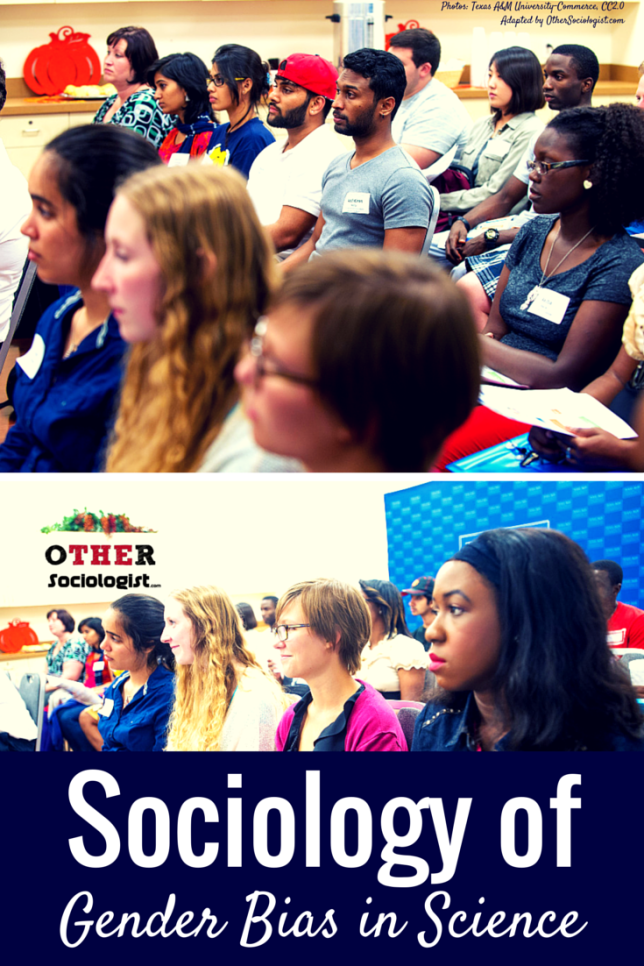
Originally shared by Zuleyka Zevallos
Sociology of Gender Bias in Science
A new study by Dr Corinne Moss-Racusin and colleagues has analysed comments by the public responding to a prominent study on gender bias in Science, Technology, Engineering and Mathematics (STEM). The researchers find that men are more likely to post negative comments in response to scientific evidence of sexism affecting women’s science careers (http://goo.gl/oZXRua).
The researchers find that men are more likely to refute science findings using subjective observations about biology (“women get pregnant and leave their jobs!”). Or men otherwise evoke ideas of personal choice (men are “hungrier” for success and work harder than women). Men are also more likely to deny that inequality exists, or conversely they blamed women for inequality. Some also said that gender bias affects men more than women (“I’ve experienced it in the opposite way so far.”). Men are also more likely to refute the science findings on inequality by stating that they work in STEM (75% of men’s comments) and holding up their personal opinions as authoritative.
The key gender difference is that men use blanket statements and personal opinion to refute scientific evidence about gender bias, while women use personal anecdotes to illustrate the scientific findings. The first strategy – to deny the science on inequality – is used largely by men to invalidate science on sexism in support of the status quo. The other strategy, used mostly by women, supports the science using personal experiences of bias to challenge the status quo. The first approach rejects science evidence, while the other embraces it.
The researchers argue their study is positive as the majority of public’s comments (754) supported the science. The researchers see that sharing science on inequality provides evidence to support change. At the same time, the fact that 95% of the negative comments were made by men is cause for concern, especially as they vehemently insulted, denied or blamed women for any inequality that might exist.
The study presents a useful framework for thinking about, and addressing, why men react negatively to the science of gender bias in STEM.
I have analysed some of my own experiences as one of three women moderators for Science on Google+, the largest science community on Google+. I show how the loudest and most persistent voices denying the science on gender bias are men. They tend two adopt to strategies, sometimes simultaneously. First they deny inequality exists, arguing social science methods are fundamentally flawed and cannot adequately measure bias. Second, they use other social science studies to refute inequality, saying inequality is rooted in biology.
These men always incorrectly use social science to make either point, demonstrating their lack of familiarity with social science methods, while also exemplifying the subjective idea that one can pick and choose which “bits” of science they want to believe. Other empirical sociological research highlights how inequality is one area of science that people disbelieve when this clashes with their personal belief system. In the case of the public who say they love science, a significant sub-group of men want to gate-keep science, by forcing women to remain silent on inequality.
Read the science on my blog: http://othersociologist.com/2015/01/19/sociology-gender-bias-science/ #sociology #science #stemwomen #stem


Great! Thanks for sharing 💝